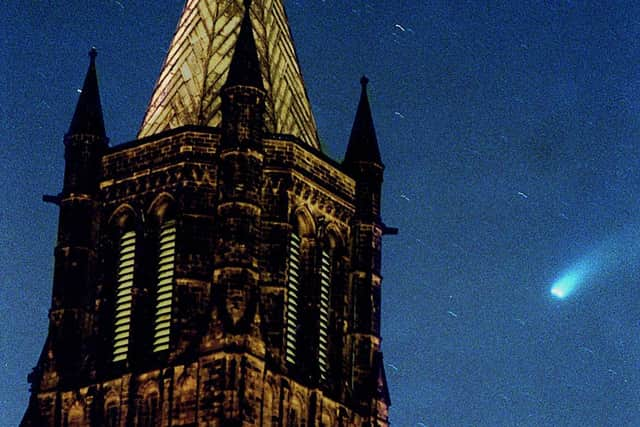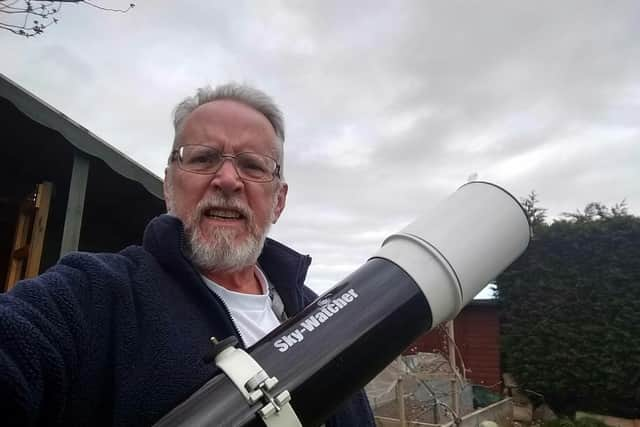Comet last seen by ancient Egyptians could appear in sky in April
Comet C-2019-Y4 Atlas was discovered by astronomers working at the Asteroid Terrestrial-impact Last Alert System (Atlas) project in Hawaii.
Described as a large, dirty snowball, it's still not known exactly how impressive a display will occur.
Advertisement
Hide AdAdvertisement
Hide AdHowever astronomers are hoping that it might be similar to the Hale-Bopp comet - an unusually bright comet that flew by Earth, reaching its closest approach to the planet in 1997.


Speaking on Tuesday, East Yorkshire based astronomer George McManus, said: "Comets tend to develop long, fluorescent tails as they approach the sun before swinging back out into outer space.
"We hope that it will become visible to the naked eye in early April reaching closest approach to earth on May 23.
"Coming to within 100million miles of the earth, very close in astronomical terms, it presents no risk to the earth, but does have the potential to lift people's spirits as we go through the current crisis."
Advertisement
Hide AdAdvertisement
Hide AdMr McManus, a Dark Sky ambassador for the North York Moors National Park, has a 4.5 inch refracting telescope, but says a small set of binoculars will be perfectly adequate to improve any sighting of the comet.


"Look to the Northern sky. The comet should appear between the Plough and the planet Venus, easily the brightest object in the night sky at the moment other than the moon.
"We are hoping it will be as spectacular as Hale Bopp, which was visible in daylight."
"We don't know the precise composition of the comet - it could be 90 per cent ice or 90 per cent dust and that could effect whether it throws off a spectacular tail as it gets closer to the sun and the sun's gravity takes effect."
Comment Guidelines
National World encourages reader discussion on our stories. User feedback, insights and back-and-forth exchanges add a rich layer of context to reporting. Please review our Community Guidelines before commenting.